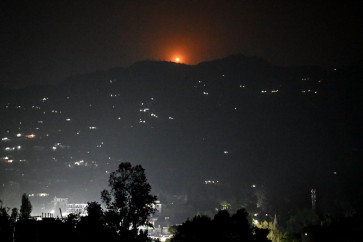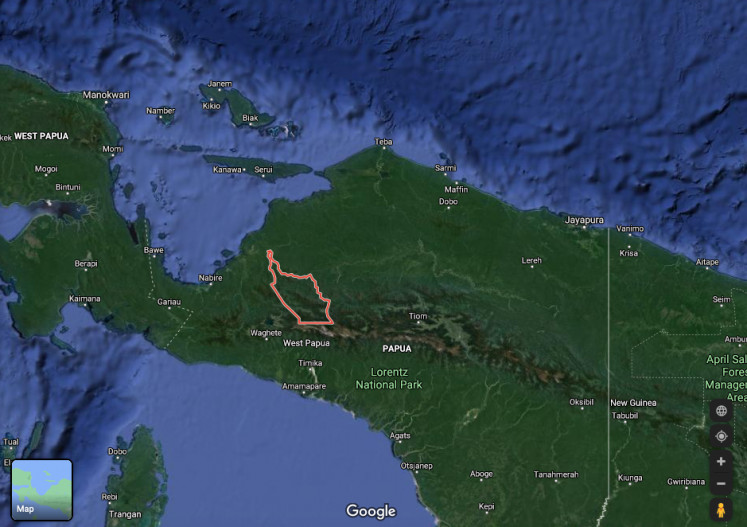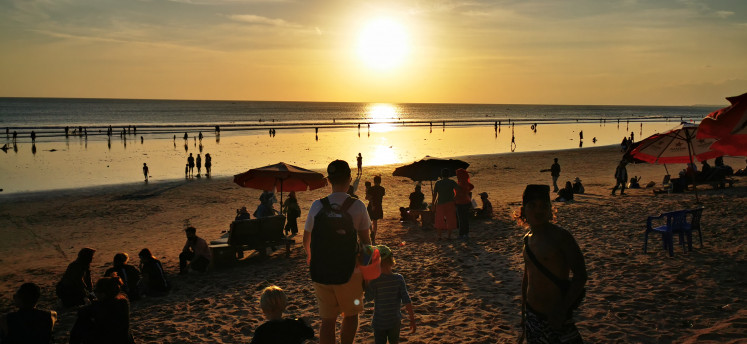Anis Hidayah: Give migrant workers more protection
Anis Hidayah: (Courtesy of Migrant Care) Just returned home from Palestine, clearly shows the hardship an Indonesian migrant worker has to face
Change text size
Gift Premium Articles
to Anyone

Anis Hidayah: (Courtesy of Migrant Care)
Just returned home from Palestine, clearly shows the hardship an Indonesian migrant worker has to face.
Promised employment in Jordan nine years ago, the agency took her to Gaza without her consent, where her employer did not pay her salary for five years.
When Umi requested the payment, her employer concocted a story, accusing Umi of stealing US$15,000 and she was sent to a police detention center. She remained there until Israel attacked Gaza a few weeks ago. After talks with her former employer Umi was freed from all charges. Umi’s ordeal underlines the lack of government protection for migrant workers. Under the Palermo Protocol, the case of Umi Saodah can be categorized as human trafficking.
To get more views on migrant workers and human trafficking, The Jakarta Post talked to Anis Hidayah, the executive director of Migrant Care – the Indonesian Association of Migrants Workers Sovereignty. The following is an excerpt of the interview:
How do you describe human trafficking in this country?
I think in the past three years the modus operandi of human trafficking syndicates remain unchanged, however the strategy has developed in various ways. Human trafficking syndicates, either the ones who meet the victims directly or the bosses, have taken different approaches.
What do you mean by unchanged?
I think human traffickers still take advantage of the fact that there is high unemployment. People need jobs and traffickers focus on these people. Syndicates offer jobs to the unemployed and promise high salaries. They use a variety of methods to get people, from threats to provision of false documents such as identity cards and passports.
They also trick people into debt. In some cases, syndicates offer to help by giving bricks to build houses or even buying motorbikes for people, who then have to work to pay off the debt. People are ignorant of the scheme, but it is a systematic process used by the traffickers. Some syndicates even pretend to be providing humanitarian aid.
Most of the victims are women because demand from overseas only require women employees. In Indonesia, poor and uneducated women are very prone to human trafficking.
The modus operandi remain the same today and yet the government does little or nothing.
If we read the profiles of victims the data are the same; they are female, uneducated and from poor regions. The situation is still the same even after the government had issued the
Trafficking Law in 2007.Many human trafficking victims go overseas with full documentation, so the process is legal.
How do you differentiate migrant workers from victims of human trafficking?
We analyze the process. There are three indicators: the process, the methods and the destinations. The process means the recruitment and training. We know all the workers go through the same process but then they get exploited, either physically or sexually, by their employers. Exploitation is the important factor to distinguish whether migrant workers are victims of human trafficking.
What about the case of Umi Saodah?
She wanted to return home from the start but her employer would not allow her to go. He refused to pay her salary for five years, a sum of $15,000. By then, Umi had also overstayed her visa.
After a dispute with her employer, who accused her of stealing money, he beat her. She threatened to report him to the police but instead was herself detained by the police. She was set free at the trial as there was no evidence.
She returned home safely with little help from the government. The government should be ashamed.
What are the figures on human trafficking today?
The number has been increasing year by year. It follows the government’s policy of increasing the number of migrant workers each year.
How do you deal with victims of human trafficking?
Human trafficking victims require separate handling; it is a crime. Cases related to the recruitment and sending of workers overseas can simply be caused by administrative failures.
Principally, we never categorize the cases. We want to get away from the way of thinking which suggests that those who are not victims of human trafficking get secondary treatment.
In addition, we have adopted the Palermo Protocol on human trafficking and the Trafficking Law that we have to follow.
Do you think there is any difference since the issuance of the law?
We don’t think so. There is no significant difference. The bureaucracy does not change even though there is now a specific law on human trafficking. The law enforcers do not understand.
The trafficking law should be used to charge those involved in human trafficking, but the court still uses others, such as the Criminal Code which has lighter punishments.
In some cases the court uses the law on child protection and not the trafficking law.
Are you often in dispute with the manpower ministry?
Very often we are in dispute with the ministry. For them, the Indonesian migrant workers (TKI) are only those who are trained and follow the regulations issued by the specific companies known as the PJTKI.
Those who work overseas without the consent of the PJTKI are not considered Indonesian migrant workers. Thus, they do not deserve proper protection.
There is a case when an Indo-nesia worker was smuggled in during a minor haj. Despite the
fact this woman worked overseas the ministry refused to help, stating that this worker was not sent by the PJTKI.
This is not in line with the UN Convention.
I think the Umi Saodah case is just one of many. The Ceriyati case is also a trafficking case, you may recall, but after two years, there has been no progress in bringing the suspects to justice.
What is the process before the workers are sent abroad?
In every case, the workers have to be willing to work in a specific country, although they must compromise with the PJTKI as there are countries that have a certain prestige for the workers.
Malaysia is for beginners while Singapore can be a place for adaptation before the workers go on to Hong Kong or Taiwan. We have the same culture as Malaysia while Singapore is a little bit different culturally.
As for Middle East, the employers there want to employ only the experienced and skilled workers. They want to employ those who have previously worked in the Middle East. Based on our records, most abuse of migrant workers took place in Malaysia and countries in the Middle East.
How can the recruitment process be made safer?
In accordance with regional autonomy, I think the management of migrant workers should be handled by the regional administrations. The root of the problem lies in the regions; the regional administrations never know if their citizens are working overseas.
There is a big dispute between the regions and the PJTKI. However the minister has issued a regulation ordering the regional administrations to take over the management of migrant workers.
I hope the situation will improve in the future.
Do you have any feedback on possible improvements?
I think the government should consider insurance to protect migrant workers. This does not mean simply allowances if they have an accident. It must be a well-planned system to protect them.
As far as I know, Indonesia has no bilateral agreement with countries where our workers work. Whether or not they work safely will depend on employers and
sheer luck.
Trafficked persons
Based on Destination:
Malaysia : 2,432
Indonesia : 613
Saudi Arabia : 60
Singapore : 27
Japan : 27
Syria : 12
Kuwait : 10
Mauritius : 7
Iraq : 7
Others : 27
Based on Province of Origins:
W. kalimantan : 709
W. Java : 682
east Java : 400
central Java : 352
west nusa tenggara : 219
North Sumatra : 221
Lampung : 158
east nusa tenggara : 129
South sumatra : 66
banten : 66
south sulawesi : 56
dki jakarta : 44
others : 119









